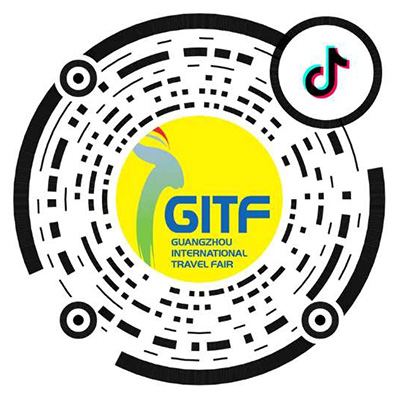
Forum Review|Deciphering the Traffic Code! 2024 World Tourism Cities Federation International Communication Forum kicked off with a bang!
2024-06-12
Since last year, the stories of various trending cities gaining popularity through viral content have increasingly highlighted the power of communication in the tourism industry. Tourism acts as a bridge for cultural exchange and mutual understanding, helping to tell China's story, showcase its beauty, and demonstrate cultural confidence. Both domestic and international communication should follow clear guidelines to be effective.
As a key forum of the Guangzhou International Travel Fair, the 2024 World Tourism Cities Federation International Communication Forum was held in the afternoon of May 16. This forum, set against the backdrop of the current era where content reigned supreme, arrived at a critical time. It not only gathered industry experts and cutting-edge concepts but also interpreted international communication strategies through practical case studies.
Expert Advice: Innovating Communication Methods for Effective Tourism Promotion
This international communication forum was hosted by the World Tourism Cities Federation (WTCF), the world's first international tourism organization focusing on cities. Over the years, the WTCF has grown to include 246 members and six branch members, covering 86 countries and regions globally.
In his opening remarks, Li Baochun, Executive Deputy Secretary General of WTCF, emphasized the organization's commitment to international communication. Leveraging its resources, WTCF strived to combine the communication codes of the information age with urban development, actively exploring new paths for high-quality cultural and tourism development.
At a time when tourism is experiencing rapid growth, Li offered three key suggestions for integrating tourism and communication to enhance development:
1.Promote Innovation in Communication Methods: To improve the cultural image of cities, it's essential to clarify urban positioning and fully utilize media, especially new media marketing channels like micro series and video platforms, to increase city exposure.
2.Build City Brands: Enhance the competitiveness of the cultural tourism industry by strengthening public services and infrastructure in tourist cities to boost convenience and attractiveness.
3.Integrate Communication with Technology: Harness the opportunities of the new technological revolution to advance the informatization, intelligence, networking, and digitization of tourist cities and destinations.
Dr. Si Wen, an international relations expert from Tunisia, also delivered a speech, emphasizing that effective communication and cooperation are foundational for building strong and sustainable relationships among nations, especially in the fast-changing globalized world. Through strategic marketing and digital platforms, destinations were able to showcase their unique attractions and cultures globally, inspiring curiosity and willingness to travel among potential tourists. She also mentioned that China has become one of the world's leading tourist destinations through international exchanges and cooperation and with its rich cultural and historical resources.
The forum featured two main roundtable sessions, each with distinct themes: "Enhancing High-Quality Cultural and Tourism Development through International Communication" and "Innovative and High-Quality Development of Micro Series in the New Era of International Communication." The discussions were filled with insightful viewpoints, frequently eliciting enthusiastic applause. The keen interest from the audience underscored the growing importance of international communication in driving cultural and tourism development.
Roundtable topic 1: International communication for quality development of culture and tourism
The first roundtable discussion focused on how international communication could drive high-quality tourism development. Moderated by Richard Matuzevich, Senior Manager of WTCF, the panel included Bingbing Zhao, Chief Representative for Greater China, London Development Agency, Chief Representative for Greater China, World Cities Culture Forum; Qinzhan Guo, Director of the Beijing News Center at HKTKWW; Shan Ma, President of the Travel Publishing Branch of China Map Publishing Group; Owen, Vice President of SEEC Media Group and Executive Producer of "Voyage New Travel" Magazine; and Xiaohong Wu, General Manager of the Globalization Business Group and Members of the International Online Office. The guests engaged in a lively exchange of ideas from different perspectives.
When the moderator posed the first question, “What changes have occurred in media communication channels?” Bingbing Zhao shared her experiences from promotion. She noted that the globalization of communication and information technology were inseparable from technological advancements. On one hand, tourism provided an excellent platform for technology promotion, while on the other hand, technology offered a new avenue for tourism promotion. From a global communication perspective, the landscape had changed significantly compared to ten years ago, with China leading in the application of social media. She believed that online experiences could generate greater interest for offline interactions, making online communication beneficial for offline engagement.
In Zanguo Qin’s view, tourism was not only an economic activity but also a cultural exchange. Therefore, promoting and publicizing tourism and cultural creation was essential in daily life: “One approach is to connect with official and mainstream media. Another is to collaborate with modern travel influencers, bloggers, and online celebrities.” Qin believed that tourism promotion could be enhanced through these two approaches.
Today, China has become the largest source and destination of international tourism. How can Chinese culture be better understood and shared with the world? Owen noted that users' ways of consuming information and their needs had evolved, with a greater emphasis on video content. Food, being a significant aspect of tourism, had always been a universally appealing topic, whether it was in the age of paper, or in the age of portals, or in the age of social media. Therefore, many tourism boards and destinations focused on this aspect: “There are three fundamental principles: innovation-driven, content is king, and leveraging technology in the AI era. These three principles remain the underlying logic of media.”
Shan Ma suggested diversifying content publication, promoting Chinese travel books in international markets, showcasing China’s cultural and tourism resources: “Only through international media communication can we bridge cultural differences and foster cross-cultural exchanges.”
Xiaohong Wu emphasized that it was the right time to explore how to utilize international communication to empower China as well as China's cultural and tourism development, and to strengthen cultural exchanges between China and the world. She said, "International communication should be from keyboard to keyboard, heart to heart, and face to face."
The forum's main discussion returned to the topic of “How can international communication better support high-quality cultural and tourism development?” Bingbing Zhao provided an example of the global promotion project "Let's Go to London," launched last year. This project brought together the London Tourism Board, all member cities, online and offline media, official media, and influencers, creating a comprehensive communication matrix that achieved unprecedented results. She suggested that whether promoting overseas institutions in China or Chinese cities and attractions abroad, a matrix should be formed through collaboration among cities, institutions, individuals, and media.
Zhanguo Qin agreed and suggested organizing larger and higher-level forums and events, leveraging resources from airlines, travel agencies, and media, integrating them to enhance promotional efforts. From a media perspective, Owen emphasized the importance of fully embracing new opportunities, capturing manageable traffic, and pursuing comprehensive engagement with the future.
Shan Ma, also a media professional, offered several suggestions. She emphasized the importance of deeply exploring the cultural connotations of tourist destinations during tourism promotion and continually pursuing technological innovation. She stressed that the integrity and authenticity of cultural heritage must be maintained, especially in cultural tourism promotion. Xiaohong Wu vividly compared international communication to a grand chorus, a symphony requiring the concerted efforts of all parties. She highlighted the significance of harmonizing differences, noting that world civilizations were diverse, and in international communication, we should appreciate the beauty of others and share our own beauty in unity.
Roundtable Topic 2: Practical Exploration of Micro Series Innovation and Quality Development
The second roundtable session, focusing on the innovative and high-quality development of micro series in the new era of international communication, garnered significant attention. With the rapid growth of micro series, the tourism industry seeks to capitalize on this trend as a new platform for international communication. Professor Yang Liu from the School of Journalism and Communication at Sun Yat-sen University; Jiu Luo, General Manager of Canton Tower; Ailin Zhou, General Manager of Television Peak Co. Ltd., and Dr. Majda from Beijing Forestry University shared their perspectives.
According to the latest industry data, the market size of China's online micro series industry reached 37.39 billion yuan in 2023, a year-on-year growth of 267.65%. By 2027, it is expected to reach 100 billion yuan, demonstrating strong development momentum. Micro Series not only thrive in the domestic market but also show significant growth potential in international markets, becoming a powerful tool for sharing Chinese stories globally and enhancing international communication.
Ailin Zhou believed that a good micro series could transform a tourism industry or a city into an IP. For Chinese micro series to go global, mutual value conversion was essential: "In the future, everything can be short, and everything can be innovative when it comes to micro series."
This year, the National Radio and Television Administration launched the "Travel with Micro Series" creation plan to further promote the integrated development of "micro series + cultural tourism." Jiu Luo stated that cultural tourism enterprises should engage in micro series creation. Currently, micro series were in the early stages of promoting cultural tourism, showing great potential. As enterprises, on one hand, we need to embrace and adapt to the trend, but on the other hand, we must make investments based on our own circumstances. "Each company should use micro series to promote itself according to its unique characteristics."
Liu Yang noted that one of the significant challenges was delivering high-quality content through the medium of micro series. Additionally, issues such as copyright and overly aggressive monetization models that disrespected the audience need to be addressed promptly. It's crucial to consider how to effectively advertise through micro series and what impact it would have. "However, the primary focus of micro series should still be on content creation; content is king," she emphasized.
Dr. Majda from Morocco shared her personal experiences, explaining that micro series were popular globally because they provided interesting and meaningful information in a short time, meeting people's needs.
Guests at the forum agreed that micro series meeting such demands were good works. Ailin Zhou added that micro series offered emotional value, and their formats would evolve, with various lengths and episodic structures: "We hope that in the future micro series can serve as bridges for global tourism development and international communication, showcasing the beauty of our cities and lifestyles to the world and vise versa."
At the forum's conclusion, the guests expressed their hopes for the future role of micro series in promoting high-quality tourism development. Liu Yang hoped for more innovative and diverse micro series content. Jiu Luo emphasized the importance of embracing trends while being cautious, as trends could be fleeting. Each enterprise should create micro series that align with their unique characteristics. Ailin Zhou agreed, adding, "We hope that micro series will be warmer, more loving, and more emotionally engaging, connecting the world and fostering a positive cycle for tourism development."
The successful organization of this forum has provided valuable experience and ideas for the international communication of cultural tourism industry. All parties had in-depth discussions with remarkable results. The many innovative ideas and strategies put forward will strongly promote the continuous progress and development of the cultural and tourism industry in international communication, and also provide positive assistance for the further exploration of the cultural and tourism industry in the field of international communication.
Address: Room 1510, West Tower, Poly Trade Center, No.1000 Xingang East Road, Haizhu District, Guangzhou, China










